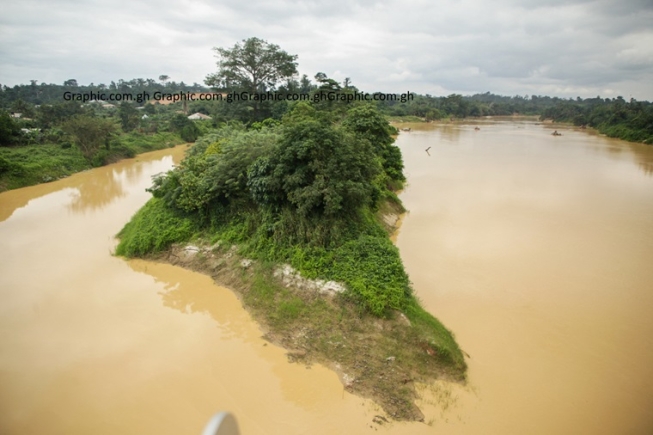
Bots pushed anti-China narrative before Ghana’s mining trade ban
An organised bot campaign on X, formerly Twitter, pushed anti-China narratives in Ghana months before the government announced a major clampdown on foreign participation in the country’s gold trade, AFP has reported.
According to the investigation, fake accounts impersonating real Ghanaians were used to circulate coordinated messages blaming Chinese nationals for the growing crisis of illegal small-scale gold mining, known locally as galamsey. The campaign ran for at least nine months before the government, in April, banned foreigners from trading in Ghana’s local gold markets and granted exclusive rights to the newly established Ghana Gold Board (GoldBod).
“The bots were clearly designed to influence public discourse and perception about Chinese involvement in illegal mining,” said Darren Linvill, a disinformation expert at Clemson University who, together with colleague Patrick Warren, identified at least 38 such accounts. “There are likely far more,” Linvill added.
Posts analysed by AFP showed that the accounts used Ghanaian Pidgin and standard English, often echoing similar messages. One widely circulated post read, “Corruption be big wahala (problem) for here — look at galamsey, when Chinese come inside, everything change sharp.” Another accused Chinese companies of wanting to “exploit we resources and leave we people with nothing.”
Despite repeated claims targeting foreign actors, particularly Chinese nationals, the role of Ghanaian individuals, including political and business elites implicated in the illegal mining trade, was largely omitted in the campaign.
Senyo Hosi, a known anti-galamsey campaigner, criticised the one-sided narrative, stating: “China’s role is significant, but it would be misleading to scapegoat foreigners alone.”
According to AFP, the suspicious accounts stopped posting about galamsey abruptly in March 2025, just weeks before the mining ban was announced. Many of the accounts have since been deleted, raising further questions about their origin and purpose.
The Ghanaian government and the Chinese embassy declined to comment on the report. However, police spokeswoman Grace Ansah-Akrofi told AFP that authorities had been “vigilant and proactive in detecting and dismantling digital networks engaged in disinformation,” though she did not provide specifics on the bot activity.
The bots also shared content unrelated to mining, including posts about British football, hot sauce, and Russia’s involvement in Mali — suggesting, according to Linvill, that they were likely “bots for hire” rather than part of a single-issue campaign.
“This kind of campaign highlights a blind spot in global disinformation research,” Linvill noted. “Western audiences often dominate the focus, but non-Western communities like Ghana are increasingly becoming targets of influence operations, often by their own governments.”
If the campaign had any affiliation with government interests, it would have had to span across political administrations. The mining ban came under former President Nana Akufo-Addo’s administration, but John Dramani Mahama, who has since returned to power, now leads the country.
Meanwhile, in May 2025, the GoldBod announced its first arrests since the implementation of the new regulations. Interestingly, all the foreign nationals detained were from India, not China.
Rabiu Alhassan, director of FactSpace West Africa, a disinformation research group based in Accra, cautioned against oversimplifying the mining crisis. He noted that multiple domestic and international actors have interests in Ghana’s gold sector, and the country’s location just south of the geopolitically sensitive Sahel region adds further complexity.
“Galamsey is not just an environmental or legal issue. It’s tied into corruption, politics, international trade, and now even digital manipulation,” Alhassan said. “We must remain vigilant on all fronts.”
